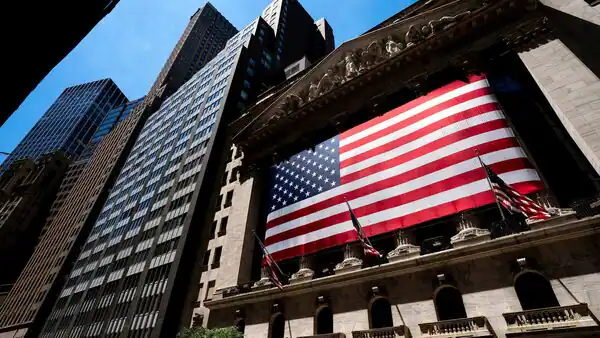US stock markets are bracing for a period of potential volatility as concerns over a potential debt default loom. The possibility of the United States defaulting on its debt obligations has ignited apprehension among investors, leading to a cautious sentiment in the market. This article delves into the factors contributing to these worries and analyzes the potential impact on Wall Street in the week ahead.
The impending debt default concerns stem from the mounting political uncertainty surrounding the US government’s ability to raise the debt ceiling. As the country approaches the debt ceiling limit, the Treasury Department’s ability to borrow funds to meet its financial obligations comes under scrutiny. Failure to raise the debt ceiling could result in a default on US government debt payments, causing significant disruptions to the financial markets and the overall economy.
The ongoing political gridlock in Washington adds to the unease. The debates and negotiations surrounding the debt ceiling raise questions about the government’s ability to reach a timely resolution. Without a bipartisan agreement to raise the debt ceiling, investors fear a potential government shutdown and subsequent credit rating downgrades, which could have far-reaching implications for financial markets.
These concerns have already started to impact market sentiment. In recent weeks, US stock markets have experienced increased volatility and downward pressure as investors adopt a cautious approach. Uncertainty regarding the potential consequences of a debt default has led to selling pressure on equities and a flight to safe-haven assets such as US Treasury bonds.
The potential implications of a debt default on Wall Street are significant. A default event could trigger a broad-based sell-off across various asset classes, including stocks, bonds, and currencies. It would erode investor confidence and increase market volatility as investors seek to protect their portfolios from potential losses. Moreover, a default would also have global repercussions, impacting international markets and investor sentiment worldwide.
Market participants are closely monitoring developments in Washington as lawmakers engage in discussions to raise the debt ceiling and avert a default. The outcome of these negotiations will play a crucial role in determining the short-term direction of the markets. Any progress towards a resolution or positive indications of bipartisan cooperation could provide relief to investors and alleviate concerns of an imminent debt default.
In the week ahead, traders and investors will be keeping a keen eye on key events and announcements related to the debt ceiling negotiations. The market’s reaction to any developments will serve as a barometer of investor sentiment and risk appetite. Volatility is expected to remain elevated as uncertainty prevails, underscoring the importance of vigilance and risk management strategies for market participants.
It is worth noting that while the current concerns are centered around the debt default, the US economy has shown resilience in the face of challenges in the past. The Federal Reserve’s monetary policy stance and fiscal stimulus measures can also influence market dynamics and provide some stability during uncertain times.
US stock markets are bracing for potential volatility as concerns over a debt default continue to weigh on investor sentiment. The ongoing political gridlock and uncertainties surrounding the debt ceiling negotiations have created an atmosphere of caution on Wall Street. Market participants are closely monitoring developments in Washington, with hopes for a timely resolution to avert a default. The outcome of these negotiations will significantly impact market direction in the week ahead, emphasising the need for investors to stay informed and exercise prudent risk management strategies in the face of heightened volatility.






